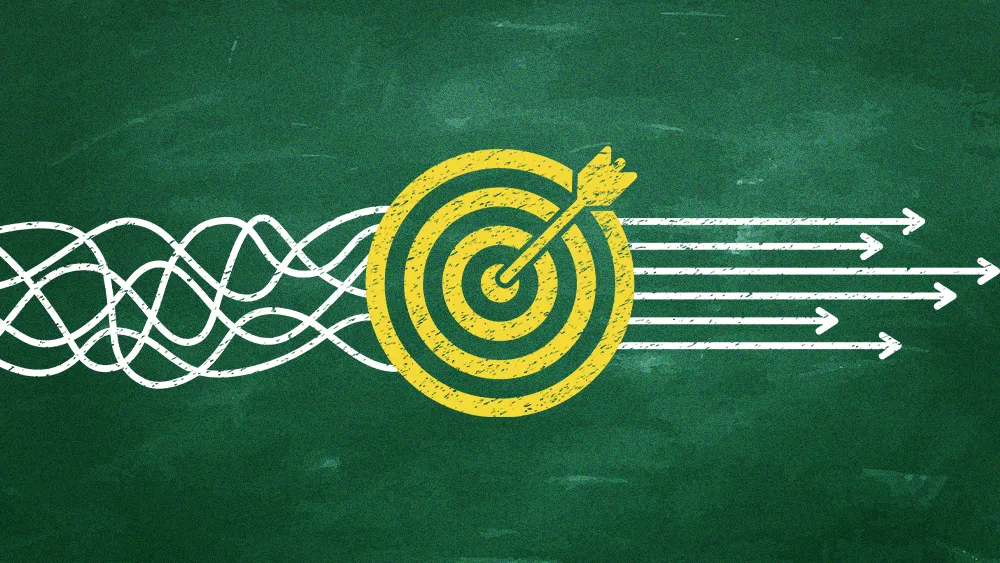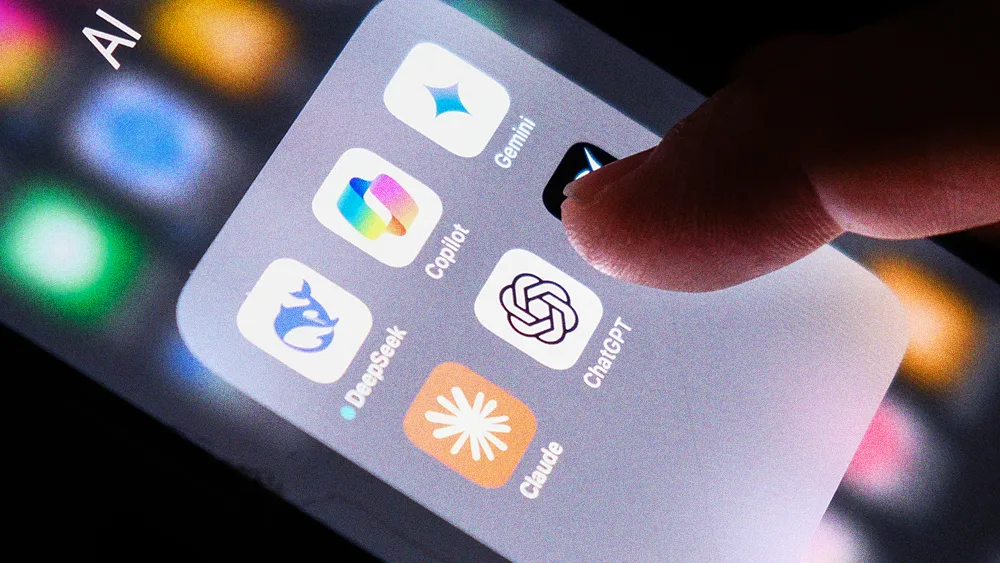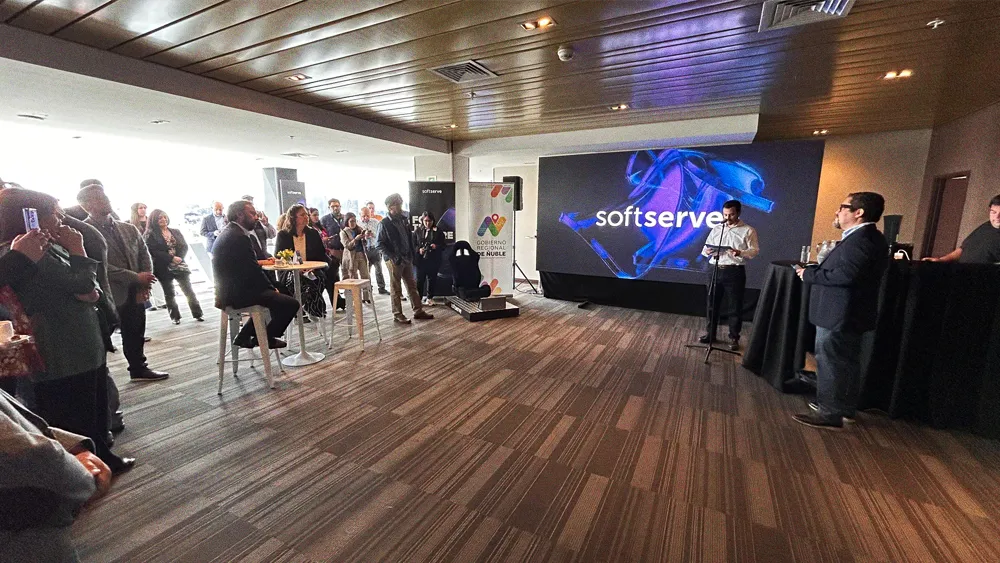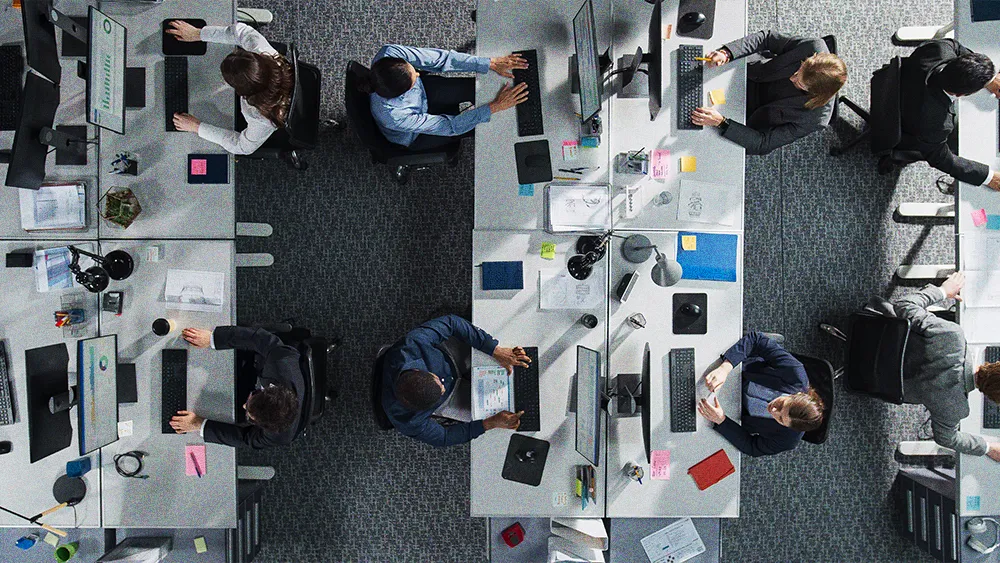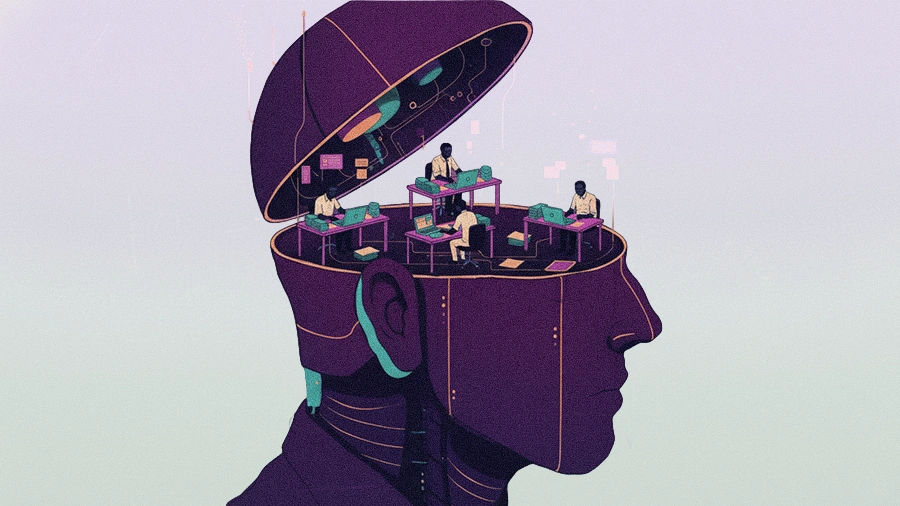Why HR must safeguard the ‘soul’ of work to steer culture through the AI storm
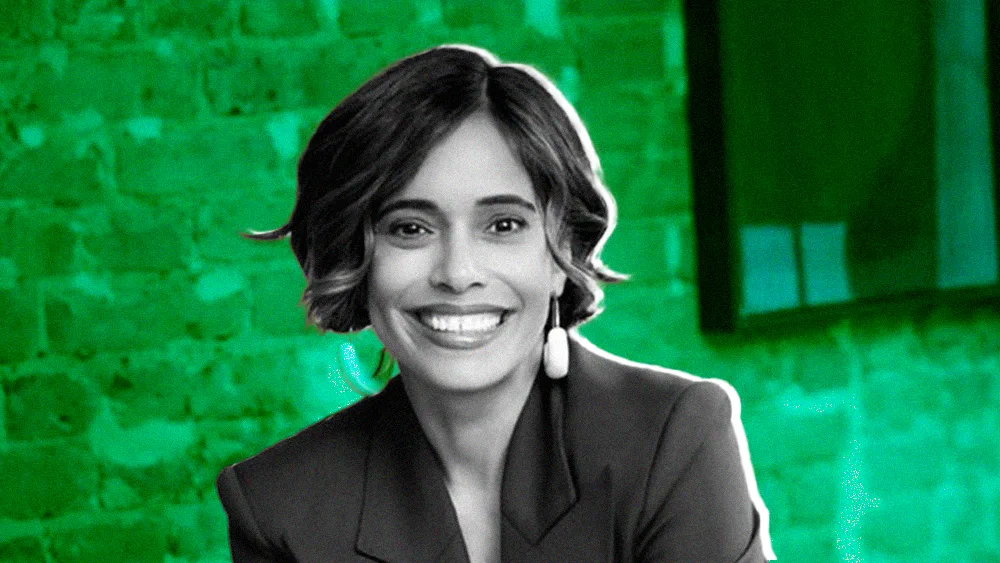
Key Points
HR’s role is evolving from operational to existential, focusing on preserving the human aspect of work amid increasing automation.
Daisy Auger-Domínguez discusses HR’s role in maintaining company culture and guiding through uncertainty.
Organizational leadership struggles to keep pace with technological advancements, creating a bottleneck in reskilling efforts.
Future workforce planning requires redesigning work to integrate human and technological tasks effectively.
HR's real power is helping companies grow without losing what makes them special: their soul. We're the stewards of culture, the architects of how people grow and connect.

Daisy Auger-Domínguez
CEO
Auger-Domínguez Ventures
The soul of work is at risk. As automation accelerates and uncertainty deepens, HR’s role is no longer just operational; it’s existential. The job now is to protect what makes work human before it disappears.
Daisy Auger-Domínguez is the CEO of the consultancy Auger-Domínguez Ventures and a former Chief People Officer at giants like VICE Media, Google, and Disney. In her view, HR is the last line of defense for keeping work human as everything else speeds toward automation.
Stewards of the soul: “HR’s real power is helping companies grow without losing what makes them special: their soul,” says Auger-Domínguez. “We’re the stewards of culture, the architects of how people grow and connect. We also serve as guides through uncertainty, and that role is still really critical.” In a moment when speed and scale often take priority, she sees HR as the keeper of what makes work matter. Beyond managing talent, it’s about shaping how work gets done and making sure it still reflects the values that set a company apart.
Nail biting: “The job market is in complete disarray,” says Auger-Domínguez. “What we’ve experienced over the last six months is beyond anything we’ve seen before—and it continues.” Layoffs are hitting every sector, internships are disappearing, and AI is fueling new fears about job security. “If you’re in a role that feels wobbly, or where automation is coming for your tasks, that uncertainty becomes very real.”
Leadership is lagging: While technology accelerates, organizational leadership is struggling to keep pace. “Boards are not moving fast enough,” says Auger-Domínguez. “All the layers of leadership are just catching up while this technology is moving faster than even the people who created it expected.” That gap is creating a critical bottleneck, especially as companies face mounting pressure to reskill. “We have to help people develop the skills they need for what’s next. But before we do that, we have to develop them ourselves,” she says. “We’re in that conundrum right now of how quickly we can do that.”
A new blueprint: The old ways of organizing a company are no longer sufficient to navigate the chaos. “The way we approach workforce planning has changed. Org charts and structures will need to change with it,” Auger-Domínguez explains. The future isn’t about simply having fewer people; it’s about redesigning work itself. “This is work that is going to be done by humans, and this is work that is going to be done by technology. And this is how the two shall meet.” This requires what she calls “ninja-level skills” in workforce planning, a discipline most organizations have historically neglected.
Human at heart: “No matter how smart these tools become, they cannot replace human judgment and empathy and the ability to build trust, which are critical to managing people,” says Auger-Domínguez. She sees AI not as a replacement, but as a tool to offload rote tasks and make space for work to become more personal and meaningful.
“It’s about keeping work human while helping businesses move faster and smarter,” she adds. “In a world that is shifting so quickly, we can be the heartbeat of organizations—especially when we need heartbeats more than ever.”
It’s about keeping work human while helping businesses move faster and smarter. In a world that is shifting so quickly, we can be the heartbeat of organizations—especially when we need heartbeats more than ever.

Daisy Auger-Domínguez
CEO
Auger-Domínguez Ventures
It’s about keeping work human while helping businesses move faster and smarter. In a world that is shifting so quickly, we can be the heartbeat of organizations—especially when we need heartbeats more than ever.

Daisy Auger-Domínguez
CEO
Auger-Domínguez Ventures
Related articles
TL;DR
HR’s role is evolving from operational to existential, focusing on preserving the human aspect of work amid increasing automation.
Daisy Auger-Domínguez discusses HR’s role in maintaining company culture and guiding through uncertainty.
Organizational leadership struggles to keep pace with technological advancements, creating a bottleneck in reskilling efforts.
Future workforce planning requires redesigning work to integrate human and technological tasks effectively.

Daisy Auger-Domínguez
Auger-Domínguez Ventures
CEO

CEO
The soul of work is at risk. As automation accelerates and uncertainty deepens, HR’s role is no longer just operational; it’s existential. The job now is to protect what makes work human before it disappears.
Daisy Auger-Domínguez is the CEO of the consultancy Auger-Domínguez Ventures and a former Chief People Officer at giants like VICE Media, Google, and Disney. In her view, HR is the last line of defense for keeping work human as everything else speeds toward automation.
Stewards of the soul: “HR’s real power is helping companies grow without losing what makes them special: their soul,” says Auger-Domínguez. “We’re the stewards of culture, the architects of how people grow and connect. We also serve as guides through uncertainty, and that role is still really critical.” In a moment when speed and scale often take priority, she sees HR as the keeper of what makes work matter. Beyond managing talent, it’s about shaping how work gets done and making sure it still reflects the values that set a company apart.
Nail biting: “The job market is in complete disarray,” says Auger-Domínguez. “What we’ve experienced over the last six months is beyond anything we’ve seen before—and it continues.” Layoffs are hitting every sector, internships are disappearing, and AI is fueling new fears about job security. “If you’re in a role that feels wobbly, or where automation is coming for your tasks, that uncertainty becomes very real.”

Daisy Auger-Domínguez
Auger-Domínguez Ventures
CEO

CEO
Leadership is lagging: While technology accelerates, organizational leadership is struggling to keep pace. “Boards are not moving fast enough,” says Auger-Domínguez. “All the layers of leadership are just catching up while this technology is moving faster than even the people who created it expected.” That gap is creating a critical bottleneck, especially as companies face mounting pressure to reskill. “We have to help people develop the skills they need for what’s next. But before we do that, we have to develop them ourselves,” she says. “We’re in that conundrum right now of how quickly we can do that.”
A new blueprint: The old ways of organizing a company are no longer sufficient to navigate the chaos. “The way we approach workforce planning has changed. Org charts and structures will need to change with it,” Auger-Domínguez explains. The future isn’t about simply having fewer people; it’s about redesigning work itself. “This is work that is going to be done by humans, and this is work that is going to be done by technology. And this is how the two shall meet.” This requires what she calls “ninja-level skills” in workforce planning, a discipline most organizations have historically neglected.
Human at heart: “No matter how smart these tools become, they cannot replace human judgment and empathy and the ability to build trust, which are critical to managing people,” says Auger-Domínguez. She sees AI not as a replacement, but as a tool to offload rote tasks and make space for work to become more personal and meaningful.
“It’s about keeping work human while helping businesses move faster and smarter,” she adds. “In a world that is shifting so quickly, we can be the heartbeat of organizations—especially when we need heartbeats more than ever.”
